Search Images
Browse Content (p. 886)
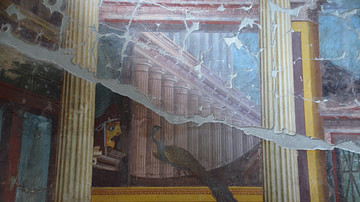
Image
Fresco with Theatre Mask and Peacock, Oplontis Villa Poppaea
Fresco in the Second Style showing a theatre mask, a peacock, and a perspective view of colonnades. The fresco decorates the east wall of the large oecus (room) of the Oplontis Villa Poppaea, Italy. 1st century BCE.
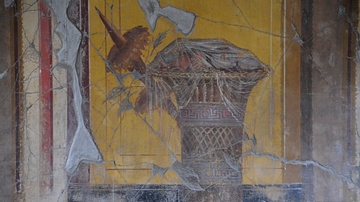
Image
Fresco with Basket of Fruit, Oplontis Villa Poppaea
Fresco in the Second Pompeian Style with a basket of fruit covered by a very thin veil. 1st century BCE. Oplontis Villa Poppaea (also known as Oplontis Villa A), Italy.
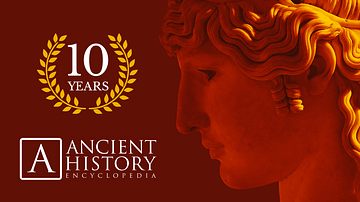
Image
10 Years of Ancient History Encyclopedia
Celebrating ten years of Ancient History Encyclopedia! We launched on 25 August 2009.
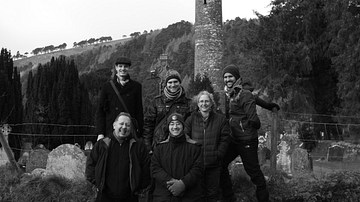
Image
AHE in Ireland, January 2015
A photo of the AHE team meeting in Ireland, January 2015. The photographer, Mark Cartwright, is missing from the photo. Top row: James Blake Wiener, Jan van der Crabben, Karen Barrett-Wilt, Cristian Violatti Bottom row: Joshua Mark...
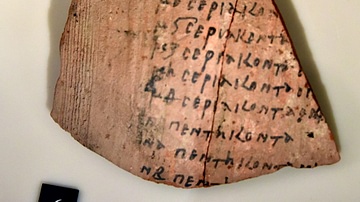
Image
Ostracon with Mathematical Text
The Greek inscription on this fragment of ceramic (ostracon) mentions a list of exercises of numbers, from 83 to 52. The Greek numerals are compared with the numbered words. From Egypt, precise provenance is unknown. Byzantine period, 6th...

Image
Hittite Version of Kadesh Treaty
This is the Hittite version of the so-called "Kadesh Treaty" (also called the Silver Treaty or the Eternal Treaty). It was an Egyptian-Hittite peace treaty. Only three tablets of this Treaty were found in the Hittite capital, Hattusa, among...
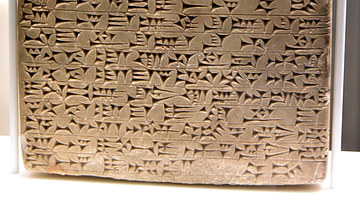
Image
Foundation Inscription of Adad-nirari I
During the renovation work of the temple of Ishtar, the Assyrian king Tukulti-Ninurta I (r. 1243–1207 BCE) found a stone tablet among the foundations with an inscription by his grandfather Adad-nirari I (1295–1264 BCE). On the inscription...

Image
AHE Receives eu Web Award
Jan van der Crabben (CEO) and James Blake Wiener (Communications Director) receive the 2018 .eu Web Award at the award ceremony in Brussels.
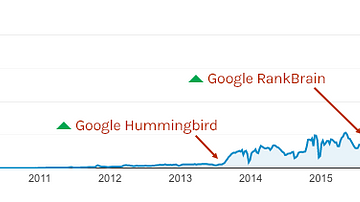
Image
AHE Traffic History 2009-2019
A history of our traffic from 2009 to 2019, including three major Google updates that affected us significantly.
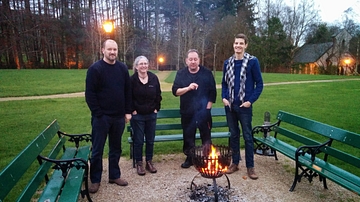
Image
Mark, Karen, Joshua & James
From left to right: Mark Cartwright, Karen Barrett-Wilt, Joshua Mark, James Blake Wiener. Pictured in Wicklow, Ireland, 2015.